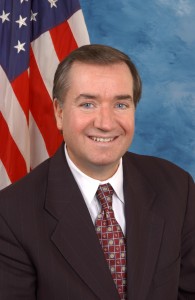 Yesterday I voted to repeal Obamacare, a law that will inexorably lead to the takeover of our health care system by the federal government.
Yesterday I voted to repeal Obamacare, a law that will inexorably lead to the takeover of our health care system by the federal government.
Just this past week, the nonpartisan Congressional Budget Office estimated that Obamacare will cost taxpayers a net $1.35 trillion dollars over the next 10 years. Where does the “affordable” in the “Affordable Care Act” come from?
The budget office also points out that 10 million workers will lose their employee-based insurance plans to Obamacare endorsed plans over the next 6 years, a tenfold increase from its initial projection. Clearly there are more economical, market-based ways to drive down health care costs, increase quality of care, and target those most in need.
Even if the Senate is able to advance a repeal, it’s unlikely the President would sign away his landmark legislative accomplishment despite the harm it’s doing everyday American families. But another hope exists on the horizon. The Supreme Court is considering the case of King v. Burwell which will decide whether the President overextended his executive authority by giving subsidies to people living in states without state-run exchanges for purchasing healthcare insurance.
If the justices find the President in the wrong, Obamacare is effectively sunk. This is an opportunity for those who wish to see more patient-based, free market solutions implemented to ensure Americans have access to quality health insurance and the doctors of their own choosing.
Voting for repeal alone isn’t enough, which is why I’ve supported numerous other conservative, workable approaches to our health care system. Instead of a top-down government system, let’s spur more competition between insurance companies and lower coverage costs by allowing consumers to purchase health insurance across state lines. Another good idea: allowing small businesses to pool together and create the same buying power as large corporations, therefore gaining access to lower insurance rates. Better yet:
Why don’t we reform medical malpractice laws in a commonsense way that limits trial lawyer fees and non-economic damages while maintaining strong protections for patients? And my personal favorite, expanding Health Savings Accounts (HSAs) by increasing the amount of pre-tax dollars individuals can deposit from their paycheck into these portable savings accounts used for health care expenses. These are just a few of the ways that we can better our health care coverage system without growing the size of the government and without infringing upon private health care decisions that should be made by patients.
Obamacare has been a disaster from the moment it was rammed through Congress during the dead of night to the difficulties it’s now causing people as they file their taxes this year. Patients have been denied the right to see their doctors. Many families have seen their premiums double. Small business owners can’t expand their businesses or hire more employees due to burdensome mandates. These cases aren’t just fodder for dry statistics; these are the stories that my friends, family, neighbors, and constituents tell me as they struggle to deal with the consequences of this law.
Obamacare is a headache for many of us, but relief might be coming soon and that’s definitely good news for all.
U.S. Rep. Ed Royce, R-Fullerton, represents Southern California’s 39th District.

